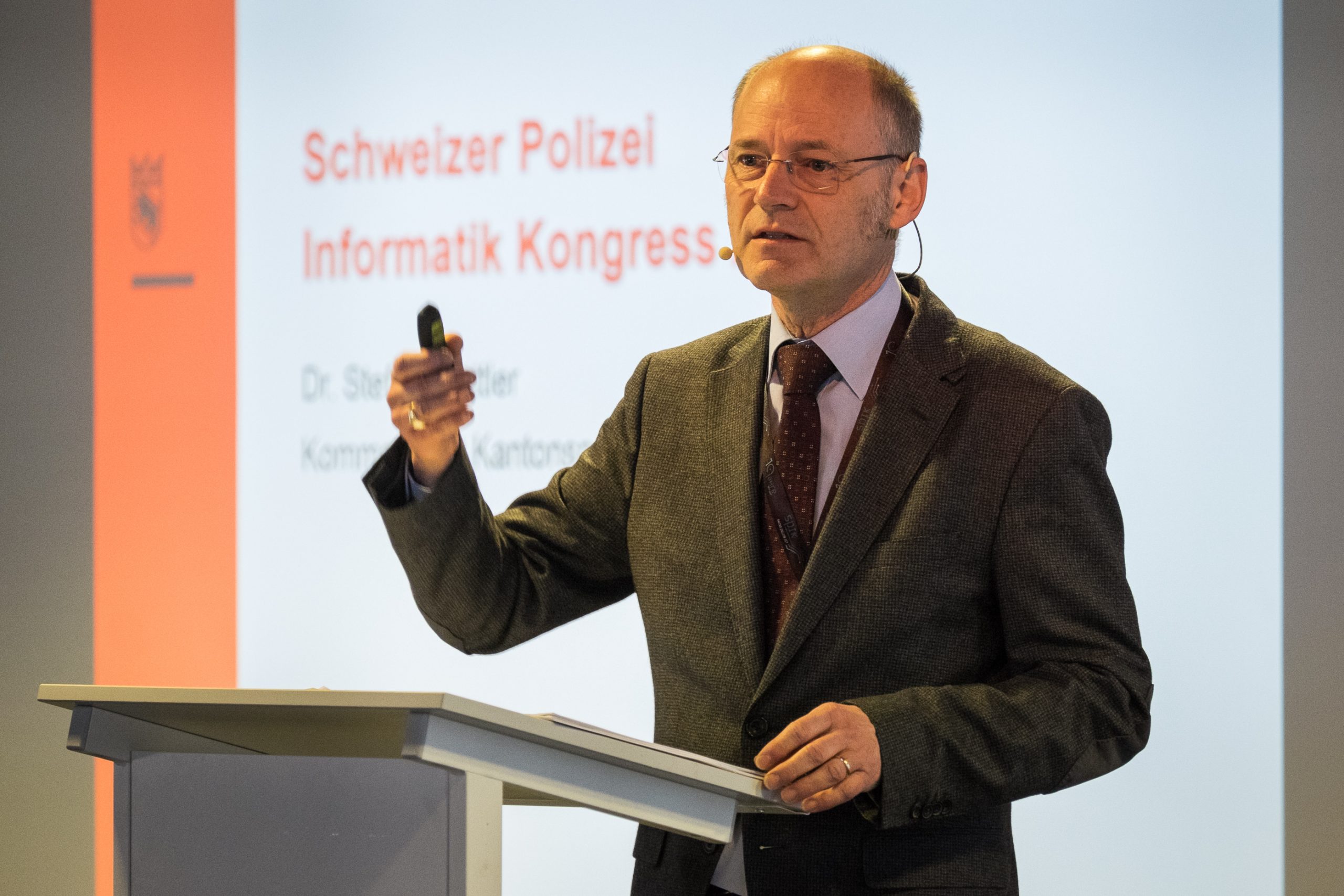SPIK with new solutions from Germany and abroad
At this year's SPIK, which is always organized by the Swiss Police ICT association, new challenges and approaches to solutions were discussed. The focus was on various areas of police IT, but also on mission communication.

The SPIK-In 2017, the Polycom Congress was held over two days for the first time. The main topic of the first day was operational communication, with the key words being Polycom maintenance and its further development into a high-performance data network and population alerting. On the second day, in addition to the traditional topics relating to operations centers, the analysis and visualization of crimes and police work was a major topic.
The Communications Day was opened by Thomas Baumann, Deputy Head of the Press Office of Munich Police Headquarters. The topic: The Munich rampage and the associated crisis communication against the background of the operational management.
The starting point: More than 80% of the population uses the Internet every day; at the same time, traditional media structures are dissolving in the medium term, according to Baumann. Against this background, an impressive quantity structure unfolded: As a result of the rampage, 4,761 calls were received by the operations centers; via social media, there were 72,000 "tickets." These were mainly reports from concerned citizens who wanted to see something worrying - resulting in countless flanking missions.
The conclusion of the successful management of a sad event: crisis communication via radio and television alone no longer works. In order not to lose time, citizens must be reached where they are: On their smartphones, Baumann said. And the police must manage to take all fears and concerns seriously.
Harmonization of police informatics
Stefan Blättler, Commander of the Bern Cantonal Police, who opened the second day as President of the KKPKS, made the central statement that the focus is on people - especially the emergency forces, which the technology has to support.
He underlined the unprecedented harmonization across cantonal borders that has been achieved in police IT in Switzerland: "We now need to breathe life into this visionary foundation," Blättler held. In the area of operations centers and police applications, digitization is already well advanced with programs such as the nationwide emergency call service management (DLWL), the digital police station Suisse ePolice for bicycle or moped thefts, or the special units app (SOE). Blättler, on the other hand, sees a great need for action in the area of telecommunications equipment, including the operation of Polycom: "Switzerland-wide harmonization would make sense." If only because the cantons have to pay for the renewal work themselves.
A view from the outside
Surrounded by representatives from the police, business, politics and the IT industry, philosopher and publicist Ludwig Hasler mused on the topic of digitization. "Everything is getting better. So worse" is the thesis. It may seem reassuring that the human error is digitally removed from circulation, but Hasler said that this also means that people are losing their responsibility. Data flows become independent, more vulnerable, and the aggressor becomes technological and anonymous. His bottom line: "A society becomes truly secure when it abolishes freedom. Digitally, this could succeed."
The 10th SPIK was attended by a total of over 700 representatives from the police and business, IT experts from various sectors and participants from politics. The annual event is the national platform for the exchange of experience on the topics of police IT and the fight against cybercrime. In addition to the eight or nineteen presentations, the participants were able to see for themselves the practical benefits of the solutions presented at over 30 exhibition stands.
Source: Swiss Police ICT









